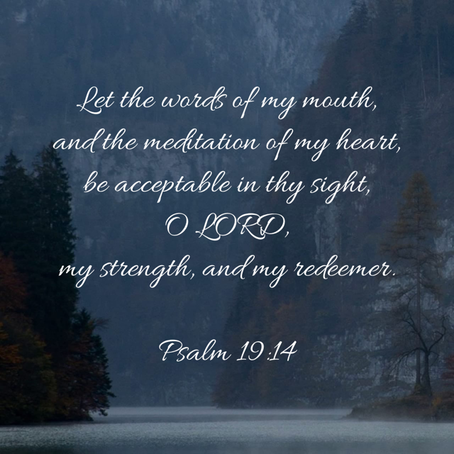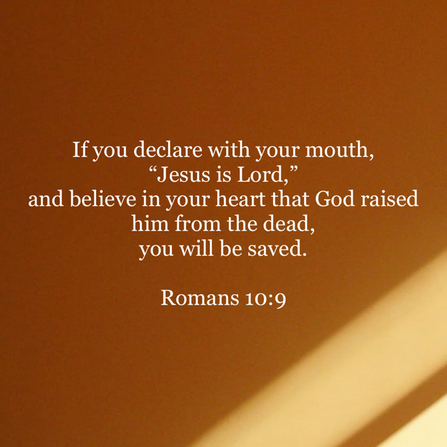|
Good morning!
We're so glad you decided to join us today!
This morning we are not meeting for Sunday School in person. Instead, we are having our church picnic, and are at Cross Creek Park. We hope you choose to read the lesson to finish up our summer quarter, Partners in a New Creation.
When we meet in person, we take some time to share both joys and concerns. Take some time to consider your last week. If you have any prayer requests, you can add them in the comments below this post. When you are ready, use the prayer below (source) to get started.
Dear God,
Thank you for giving us your word. Help us to open our hearts and minds to learn from you. Guide us in our studies, and give us wisdom and understanding. Amen.
This week's lesson is on Revelation 22:10-21.
Lesson Context
Our lesson says that the entire Bible serves as the context of today's lesson! In the Old Testament, a messiah, a deliverer, is promised for God's people. Think of all the prophecies we read as we get close to Christmas.
For to us a Child is born, to us a Son is given; and the government shall be upon his shoulder, and his name shall be called Wonderful Counselor, Mighty God, Everlasting Father, Prince of Peace.
Isaiah 9:6-7
At the time of Christ, around the first century, the Jewish people expected the messiah to be a political and military rescuer. They were under Roman control. God's anointed rescuer would defeat their nation's enemies. Jerusalem and the temple would be free from outside influence.
As we know, the messiah was not a military leader. He came to save all people from their sins, not just the chosen people in the Old Testament. His death was a sacrifice for sins, intended to be effective for all people for all time. He was the sacrificial lamb who took away the sin of the world.
1. Paths, Advent, Separation (verses 11-15)
The beginning of the scripture passage, the apostle John is still being addressed by the angel of the bowls of plagues (Revelation 21:9). This was the angel that was showing John around the New Jerusalem. When the angel says, "the time is near," it gives a heightened sense of the necessary fulfillment of prophecy: Christ will indeed return. The angel says that there are really just two paths that people take: the path of the unrepentant and the path of the repentant. At this point, it seems the judgment has already been determined. Each person will be given to according to what they have done. Those who have chosen the narrow path of repentance will enter the city. Those who have chosen the wide way of unrepentance will be left outside.
2. Testimony, Offer, Warning
Verse 16 features Jesus talking about himself. Prophecies in the Old Testament spoke of the coming Messiah as a "branch" to grow from "roots," (Isaiah 11:1; Jeremiah 23:5, 33:15; Zechariah 6:12). Here, Jesus says he is also the root from which the branch grew. That makes him the Messiah in all fullness. Jesus also calls himself the bright Morning Star. Usually, this is a reference to what we now know is the planet Venus. Our book talks about phenomenological language and typological language. Phenomenological language refers to the way things appear from the point of view of an observer. Typological language deals with symbolic meaning or representation. In this verse, we might think about the phenomenon of the morning star: the planet Venus seems to be the last star visible in the morning as the sun is rising. Symbolically, the night is almost over, and Jesus is coming soon with his life. The Holy Spirit and the body of the followers of Christ, the church, call for faith and obedience. Anyone reading the prophecy is warned to neither add to it, nor take away from it. The punishment for doing so is to be removed from the city. Our book says that reading Revelation is difficult, and that often we only read small parts. Instead, we should read the entire book in one sitting to allow its full message to speak to our minds and hearts.
3. Promising, Longing, Closing
At the end, we get a final reminder that Jesus promises to come soon. There are only two reactions to Christ's return: joy and fear. John adds a short prayer to the end: "Come, Lord Jesus." Our book compares this to Paul's "Maranatha" in 1 Corinthians 16:22. This is an Aramaic word meaning "Come, Lord." This might be the greatest faith prayer a Christian can utter, to ask sincerely for Christ to return. We are left with a final blessing. It was a comfort for the seven churches from Revelation 2 and 3, and it is a comfort for us.
Conclusion
The return of Christ is a key theme in the book of Revelation. We don't know how the second coming or our residence in the New Jerusalem will work. The end of Revelation gives some answers. But it also raises questions. In the end, we do not need to know everything.
Questions for Consideration
If you would like, you can share an answer or thought as a comment since we are not able to discuss these together.
Prayer
Father, thank you for promises both fulfilled and yet to be fulfilled. In this light, we pray, "Maranatha! Come, Lord Jesus!" Amen.
Benediction
This week's benediction is from the New King James Version.
Next week, we will be starting the fall quarter, God's Exceptional Choice. The first lesson will be on Genesis 12:1-5, 7; 15:1-7.
0 Comments
Leave a Reply. |
AuthorWe are a small, rural Presbyterian church in southwestern Pennsylvania. Archives
July 2024
Categories
All
|



 RSS Feed
RSS Feed